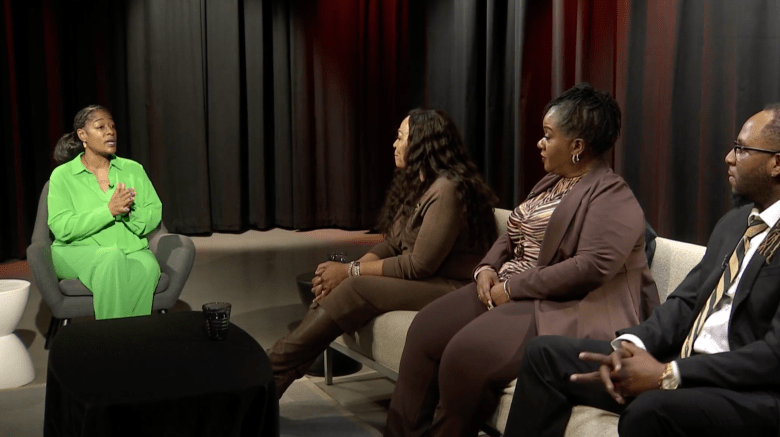
Deatria Davis, local licensed marriage and family therapist, has been working in mental health for over 20 years. But recently, she decided to change the trajectory of her career to make it more accessible.
“Particularly for people in the BIPOC community, mental health has always been taboo,” she said. “There’s a stigma associated with wanting to access help, and I’m noticing a greater influx of need in that community.”
In order to help, she wants to “plant the seed,” she said, or start the discussion about seeking mental health care within communities of color. Public access television gave her a platform to do that, she said.
Davis hosted a segment on African American mental health through the Midpen Media Center’s new television show, “Make it Real,” which aims to give community members a space to discuss local issues while learning how to work with television and media production.
Midpen Media Center is a local nonprofit that provides public access television to East Palo Alto, Palo Alto, Atherton and Menlo Park residents, while offering youth and adult media classes like studio production, digital animation, filmmaking and more.
After taking a course, community members can direct their own shows, volunteer to operate cameras for other local programs or do other behind-the-scenes work.
“Public access is a nice place to meet new people, network and to gain production skills, but in a friendlier environment,” said Asia Dubarenka, who has volunteered and worked with the studio for nearly a decade.
After COVID, production slowed down, Dubarenka said, with various television show producers and volunteers moving away – and volunteers, who dedicate their time to film and edit programs, are the heart of the media center.
With so many streaming services now available, many local viewers have transitioned away from cable television.
But with recent organizational changes – the introduction of new staff like Executive Director Biana Kovic, education manager James Snell, studio manager Jeffrey Kologe, board members and other staff – the media center has set out to engage with more people.
“Hopefully with these changes, we can focus more on working with the community and rebuilding what we have lost,” Dubarenka said.
Batya Bell de Berenfus, a new Midpen Media board member, created “Make it Real” in an effort to get more people involved with the center, which she calls a “hidden gem.”
“I wanted to create something that people could call their own,” she said.
The program would allow people to discuss critical issues, she said, while collaborating with staff and volunteers to flush out their ideas.
So far, community members have hosted episodes on climate change, homelessness and Democracy, among other topics. Davis’ show on African American mental health is the latest installment.
She spoke with guests like Darell Smith, who talked about the benefits of mental health outreach after his brother died by suicide.
“Being able to have a neutral person that you can go to and be vulnerable enough to share what you’re feeling, what you’re thinking, without any judgment – that helps mental health,” Davis said.
Davis has been interested in media and video production in her effort to reach broader audiences while discussing mental health, but she had never hosted a show in the past. “Make it Real” helped her get that experience, she said, while filling the gaps within her idea.
“Once I got through it, I knew I could do it again,” she said.
If someone from the community wants to host a show without much prior experience, they can reach out to the media center to flush out the idea and assemble a crew.
Following public access requirements, the show must represent the community in some way, whether it be a cultural piece, based on a local organization or showcasing local talent, among other options, Dubarenka said. The program also has to be non-monetizeable, with no paid show participants.
“Its about people coming together to create something new that helps other people,” she said.
